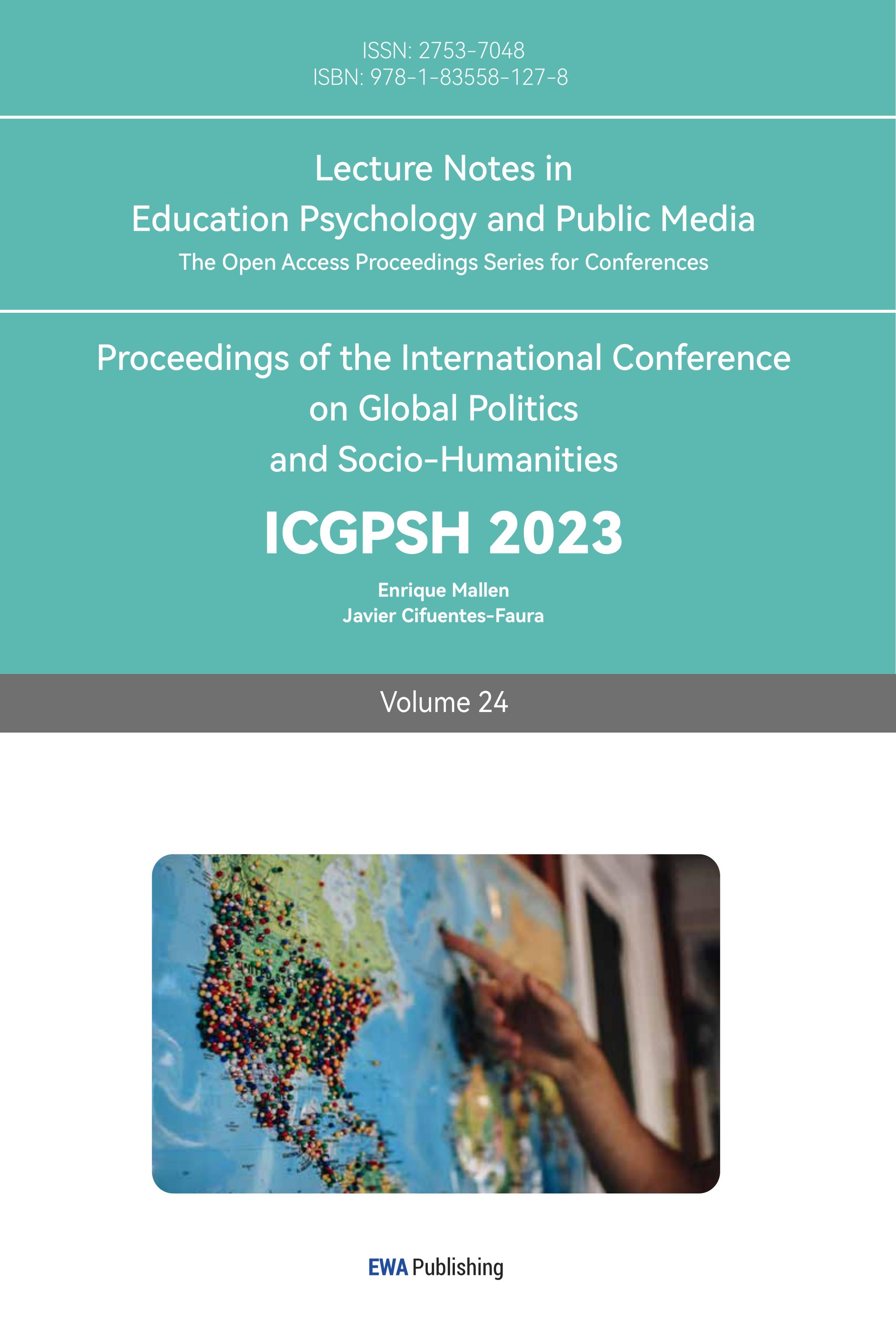References
[1]. State Council of the People’s Republic of the China. (2014). The implementation opinions of the State Council on deepening the reform of examination and enrollment system.
[2]. Cairns, L., & Malloch, M. (2017). Computers in education: The impact on schools and classrooms. Life in Schools and Classrooms: Past, Present and Future, 603-617.
[3]. ChatGPT: Optimizing Language Models for Dialogue. Retrieved from https://openai.com/blog/chatgpt/#rf2.
[4]. Mikropoulos, T. A., & Natsis, A. (2011). Educational virtual environments: A ten-year review of empirical research (1999–2009). Computers & education, 56(3), 769-780.
[5]. Kahraman, H. T., Sagiroglu, S., & Colak, I. (2010, October). Development of adaptive and intelligent web-based educational systems. In 2010 4th international conference on application of information and communication technologies, 1-5. IEEE.
[6]. Peredo, R., Canales, A., Menchaca, A., & Peredo, I. (2011). Intelligent Web-based education system for adaptive learning. Expert Systems with Applications, 38(12), 14690-14702.
[7]. Hirsh-Pasek, K., & Blinkoff, E. (2023). ChatGPT: educational friend or foe?. Retrieved from https://www.brookings.edu/articles/chatgpt-educational-friend-or-foe/
[8]. Marcus, G. and Davis, E. (2020) Rebooting ai: Building artificial intelligence we can trust. New York: Vintage Books.
[9]. White. J, Fu Q, Hays S, et al. (2023-02-21). A prompt pattern catalog to enhance prompt engineering with ChatGPT. Retrieved from https://arxiv.org/abs/2302.11382.
[10]. Dowling, M., & Lucey, B. (2023). ChatGPT for (finance) research: The Bananarama conjecture. Finance Research Letters, 53, 103662.
Cite this article
Guan,J.;Zhang,J.;Zhang,X. (2023). The Influence of Generative Artificial Intelligence on High School Students’ Academic Planning – ChatGPT. Lecture Notes in Education Psychology and Public Media,24,205-210.
Data availability
The datasets used and/or analyzed during the current study will be available from the authors upon reasonable request.
Disclaimer/Publisher's Note
The statements, opinions and data contained in all publications are solely those of the individual author(s) and contributor(s) and not of EWA Publishing and/or the editor(s). EWA Publishing and/or the editor(s) disclaim responsibility for any injury to people or property resulting from any ideas, methods, instructions or products referred to in the content.
About volume
Volume title: Proceedings of the International Conference on Global Politics and Socio-Humanities
© 2024 by the author(s). Licensee EWA Publishing, Oxford, UK. This article is an open access article distributed under the terms and
conditions of the Creative Commons Attribution (CC BY) license. Authors who
publish this series agree to the following terms:
1. Authors retain copyright and grant the series right of first publication with the work simultaneously licensed under a Creative Commons
Attribution License that allows others to share the work with an acknowledgment of the work's authorship and initial publication in this
series.
2. Authors are able to enter into separate, additional contractual arrangements for the non-exclusive distribution of the series's published
version of the work (e.g., post it to an institutional repository or publish it in a book), with an acknowledgment of its initial
publication in this series.
3. Authors are permitted and encouraged to post their work online (e.g., in institutional repositories or on their website) prior to and
during the submission process, as it can lead to productive exchanges, as well as earlier and greater citation of published work (See
Open access policy for details).
References
[1]. State Council of the People’s Republic of the China. (2014). The implementation opinions of the State Council on deepening the reform of examination and enrollment system.
[2]. Cairns, L., & Malloch, M. (2017). Computers in education: The impact on schools and classrooms. Life in Schools and Classrooms: Past, Present and Future, 603-617.
[3]. ChatGPT: Optimizing Language Models for Dialogue. Retrieved from https://openai.com/blog/chatgpt/#rf2.
[4]. Mikropoulos, T. A., & Natsis, A. (2011). Educational virtual environments: A ten-year review of empirical research (1999–2009). Computers & education, 56(3), 769-780.
[5]. Kahraman, H. T., Sagiroglu, S., & Colak, I. (2010, October). Development of adaptive and intelligent web-based educational systems. In 2010 4th international conference on application of information and communication technologies, 1-5. IEEE.
[6]. Peredo, R., Canales, A., Menchaca, A., & Peredo, I. (2011). Intelligent Web-based education system for adaptive learning. Expert Systems with Applications, 38(12), 14690-14702.
[7]. Hirsh-Pasek, K., & Blinkoff, E. (2023). ChatGPT: educational friend or foe?. Retrieved from https://www.brookings.edu/articles/chatgpt-educational-friend-or-foe/
[8]. Marcus, G. and Davis, E. (2020) Rebooting ai: Building artificial intelligence we can trust. New York: Vintage Books.
[9]. White. J, Fu Q, Hays S, et al. (2023-02-21). A prompt pattern catalog to enhance prompt engineering with ChatGPT. Retrieved from https://arxiv.org/abs/2302.11382.
[10]. Dowling, M., & Lucey, B. (2023). ChatGPT for (finance) research: The Bananarama conjecture. Finance Research Letters, 53, 103662.









